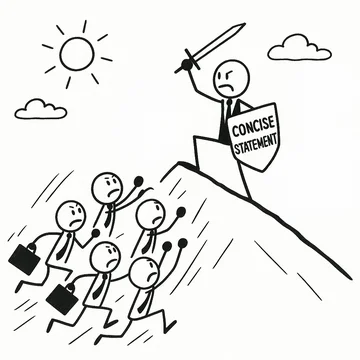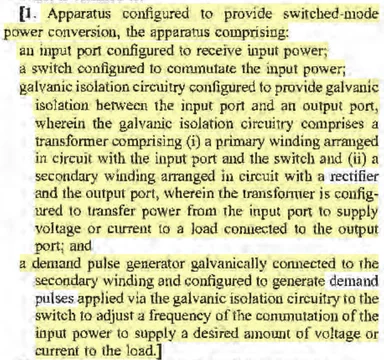
Earlier this year Judge Hall bifurcated the upcoming patent trial in Apple Inc. v. Masimo Corporation, C.A. No. 22-1377-JLH (D. Del.), keeping Apple's patent claims, the related invalidity and unenforceability defenses, and a portion of a Walker Process anti-trust counterclaim—but moving other claims to a later trial:
ORAL ORDER: Having held a case management conference on March 20, 2024, . . . IT IS HEREBY ORDERED that a 5-day jury trial is scheduled beginning October 21, 2024, with a pretrial conference scheduled for October 4, 2024 at 11:00 AM in courtroom 6D. The remaining claims and defenses in C.A. No. 22-1377 and C.A. No. 22-1378 shall be joined and/or bifurcated for trial such that the October 21 trial will proceed on (i) Apple's utility and design patent infringement claims, (ii) Masimo's invalidity and unenforceability defenses and counterclaims pertaining to Apple's patents (including any claims/defenses asserting inequitable conduct, if they survive summary judgment), and (iii) the fraud-on-the-patent-office element of Masimo's Walker Process claim (if it survives summary judgment). See FRCP 42(a), (b). Whether the jury will be sitting in an advisory capacity as to any claims or issues will be determined at a later date. See FRCP 39(c)(1). Trial on the remaining claims and issues will be scheduled at a later date.
Id., D.I. 649. The Court excluded various claims from the first trial, including the defendant's counterclaims on its own patents, and counterclaims alleging things like false advertising and unfair competition.
The parties had filed multiple summary judgment and Daubert motions, however, that related to various issues related to the claims that were set for a later trial. Last week, the Court held that those summary judgment and Daubert motions were dismissed, with leave to refile after the first case:
ORAL ORDER: The Court previously ruled that only certain claims, defenses, and issues will be tried at the upcoming October 21, 2024 trial. . . . To the extent that the parties' case dispositive and Daubert motions present issues that will not be tried at the October 21, 2024 trial, the Court does not intend to rule on those issues until after the October 21, 2024 trial. Pursuant to the Court's inherent authority to manage its docket, IT IS HEREBY ORDERED that the following motions are DISMISSED without prejudice to renew/refile after the October 21, 2024 trial: Apple's Motion for Summary Judgment Dismissing Defendants' and Counterclaim Plaintiffs' Willful and Indirect Infringement Counterclaims . . . , Apple's Motion for Summary Judgment of No Lost Profits . . . , Apple's Motion to Exclude Daniel McGavock's Lost Profits and Reasonable Royalty Opinions . . . , Apple's Motion for Summary Judgment on Defendants' False Advertising and Related State Law Counterclaims . . . , and Apple's Motion to Exclude Dr. Steven Schwartz's Product Market Opinion . . . . IT IS FURTHER ORDERED that the following motion is DISMISSED-IN-PART without prejudice to renew the portions of the motion relating to claims and defenses to be tried after the October 21, 2024 trial: Masimo's Motion to Exclude Certain Testimony of Apple's Experts . . . . A motion renewed after the October 21, 2024 trial may refer back to the briefs/appendices previously filed; alternatively, the parties may agree to file revised briefs.
Id., D.I. 678.
This is something to take into account when prioritizing motions in a case that might face bifurcation. Here, the parties knew that bifurcation was on the table at the time they filed their SJ motions, so they could—and maybe they did—prioritize the motions that will have the most impact in the first trial (because if one party resoundingly wins the first trial, any subsequent trials are less likely).
It's also notable that the motions were dismissed without prejudice, and the Court suggested the parties may agree to file revised briefs—but didn't set explicit page limits.
If the case makes it that far, it will be interesting to see how the parties handle the renewed briefing. They may try to set the page limits to correspond to the amount of material submitted on each issue in the original briefing—but that could lead to odd page limits involving fractions of a page. More likely, they'll just agree to a set page limit such as 5/5/2 or 10/10/5 (opening/answering/reply), depending on how many pages were spent on these issues originally.
If you enjoyed this post, consider subscribing to receive free e-mail updates about new posts.




